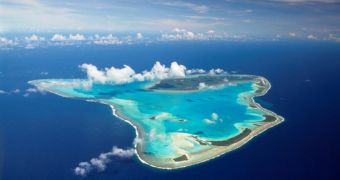Several national governments, together with independent conservation organizations and companies promoting tourism, have for some time now been looking into the possibility of establishing a new marine park.
According to recent news on this topic, what is likely to become the world's largest aquatic wildlife sanctuary is to be established in the Pacific Ocean, at a distance of roughly 3,000 kilometers from New Zealand.
Apparently, the Cook Islands are to take center stage in these conservation efforts, as they are to stand at the core of said marine park.
The official announcement was made by Henry Puna, Prime Minister for the Cook Islands, who also explained that, “The marine park will provide the necessary framework to promote sustainable development by balancing economic growth interests such as tourism, fishing and deep sea mining with conserving core biodiversity in the ocean.”
As Inter Press Service explains, this new marine park is to encompass a total of one million square kilometers, and therefore be roughly three times bigger than the Great Barrier Reef Marine Park now up and running in Australian waters.
According to the same source, one very interesting feature of this marine park is represented by the fact that, as preliminary designs indicate, inhabited portions of lands will also be included within the protected areas.
Moreover, odds are that both commercial fishing and deep sea mining will be allowed in this wildlife sanctuary, provided that their environmental impact is kept down at a minimum.
Naturally, scientific investigations are expected to soon be carried out in these waters, in order for environmentalists to be able to establish precisely which plant and animal species are living here.
Therefore, it is quite likely that it will take years before this conservation project begins to actually take shape.
As well as this, those involved in establishing this new marine park need to search for the necessary funding, and this activity might also prove to be rather time-consuming.
Still, even if it does indeed take years before this wildlife sanctuary becomes a reality, the good news is that sooner or later marine plant and animal species will witness the benefits of having a new refuge.
“It’s about taking a stand for our environment. Even though we’re one of the smallest nations in the world, we want to show others that we can do it – so they may follow,” commented environmentalist Kevin Iro on the importance of this official announcement.

 14 DAY TRIAL //
14 DAY TRIAL //